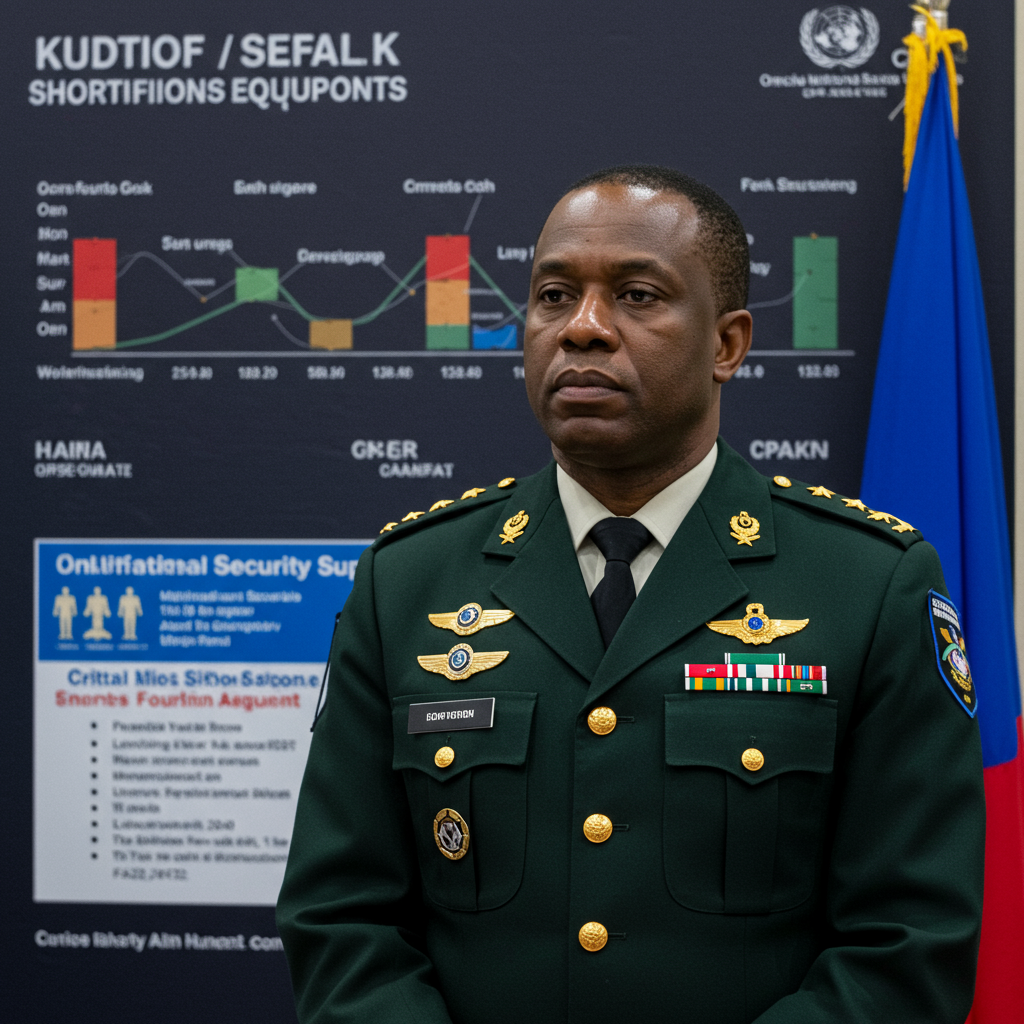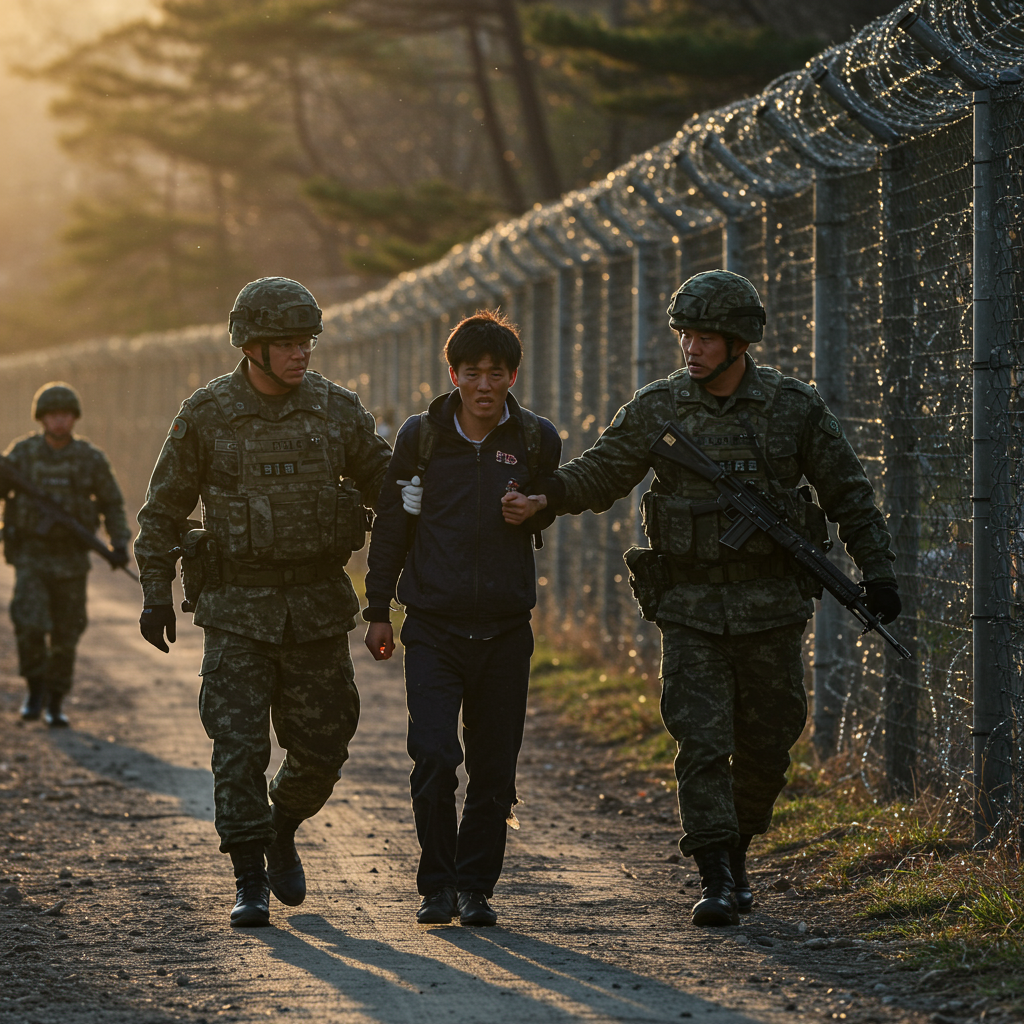PORT-AU-PRINCE, Haiti – One year after the initial deployment, the international mission tasked with supporting Haiti’s police force in combating powerful gangs is facing severe limitations. The commander of the United Nations-backed Multinational security Support (MSS) mission has issued a stark warning: the effort is significantly short on troops, essential funding, and necessary equipment.
This critical assessment comes as gang violence continues to plunge the nation into chaos, displacing vast numbers of civilians and paralyzing key functions of the state. The mission, seen as a crucial lifeline by Haitian authorities, is struggling to meet its objectives under the weight of resource deficits.
Understanding the Mission’s Mandate and Context
Haiti first formally requested urgent international security assistance in 2022 to help its National Police regain control from escalating gang power. These criminal groups have effectively taken over large parts of the capital, Port-au-Prince, and surrounding areas. The violence has led to a humanitarian crisis, with widespread killings, kidnappings, and sexual violence forcing hundreds of thousands from their homes. Hospitals have shuttered, economic activity has ground to a halt, and the judicial and governmental systems are severely hampered.
The Multinational Security Support (MSS) mission, though backed by the UN Security Council, is not a traditional UN peacekeeping operation. It operates under a unique model, relying on voluntary contributions from member states for both personnel and funding. This structure was adopted after proposals for a formal UN force faced opposition from certain Security Council members. Kenya stepped forward to lead the mission, with its first contingent of police arriving in June 2025. This marked the formal start of the deployment, over a year and a half after Haiti’s initial plea for help.
The Crippling Resource Deficits
The commander of the MSS mission, Godfrey Otunge, recently highlighted the significant challenges confronting the operation. Speaking to reporters in Port-au-Prince, he noted that while the mission is actively working to address these issues, they are hindering its effectiveness.
The Troop Deficit
A major hurdle is the severe shortfall in pledged personnel. The initial goal for the MSS mission was to deploy approximately 2,500 troops to support the Haitian National Police. However, one year into the deployment, well under half of that number are actually on the ground. According to a recent note sent by Kenyan President William Ruto to the UN Security Council, the current deployed strength stands at just 991 personnel.
This contingent comprises mostly Kenyans, but also includes personnel from other contributing nations:
150 Guatemalans
78 Salvadorans
23 Jamaicans
Six Bahamians
Two Belizeans
President Ruto indicated that many personnel who have* been pledged are currently on standby because existing logistical support contracts are insufficient to accommodate them. This points to a significant bottleneck in translating international commitments into operational capacity.
Funding and Equipment Gaps
Beyond personnel, the mission also faces critical shortages in other areas. Commander Otunge acknowledged that the MSS is operating below the capabilities required for effective execution. President Ruto elaborated on this, stating that the mission’s equipment levels are currently below 30% of the planned capabilities. This includes everything from vehicles and communication systems to protective gear and specialized tools needed for anti-gang operations.
The model of relying on voluntary contributions has proven challenging, leading to delays and gaps in securing the necessary financial support and logistical resources. While some progress has been made, such as establishing two key strategic bases in the violence-stricken Artibonite department outside the capital, the overall operational capacity remains severely hampered by these deficits.
Humanitarian Crisis Worsens Amid Shortfalls
The inability of the MSS mission to rapidly scale up and effectively counter gang activity has devastating consequences for the Haitian population. The humanitarian situation has deteriorated significantly since the mission’s planning phases. Before the first international troops arrived in June 2025, approximately 580,000 people had already been displaced by violence. Today, that number has soared to nearly 1.3 million people forced from their homes in just six months, according to UN estimates.
This mass displacement fuels widespread hunger and insecurity. The lack of adequate security prevents aid organizations from delivering assistance reliably and hinders efforts to restore essential services. Much of the country remains trapped in a cycle of violence and desperation, underscoring the urgent need for the MSS mission to reach its full operational strength.
Haitian leaders have repeatedly advocated for the MSS to be converted into a formal UN peacekeeping mission. They argue this would provide a more stable and predictable funding mechanism, ensuring the necessary resources are available consistently. However, efforts to achieve this conversion at the Security Council have stalled due to opposition from Russia and China, leaving the mission reliant on the challenging voluntary contribution model.
The commander’s warning serves as a critical call to action for the international community. Without increased and expedited contributions of troops, funding, and essential gear, the mission risks being unable to effectively support Haiti in overcoming the crippling grip of gang violence, leaving the population vulnerable and the country’s future uncertain.
Frequently Asked Questions
What are the biggest challenges facing the Haiti security mission right now?
The main challenges highlighted by the mission leader include significant shortfalls in three key areas: personnel (with less than half the target troops deployed), funding (due to reliance on voluntary contributions), and equipment (operating at below 30% of planned levels). Logistical bottlenecks are also preventing some pledged troops from being deployed.
Which countries are contributing troops to the Haiti security mission?
According to recent reports, the personnel deployed to the Multinational Security Support (MSS) mission in Haiti include contingents from Kenya (leading the mission), Guatemala, El Salvador, Jamaica, the Bahamas, and Belize. More countries have reportedly pledged personnel but are not yet on the ground.
Why isn’t the Haiti security mission a formal UN peacekeeping force?
Haiti’s government has requested that the mission become a formal UN peacekeeping operation, which would provide more stable resources. However, this proposal has faced opposition from permanent members of the UN Security Council, specifically Russia and China. As a result, the mission operates under a model funded by voluntary international contributions, which has proven less predictable.




